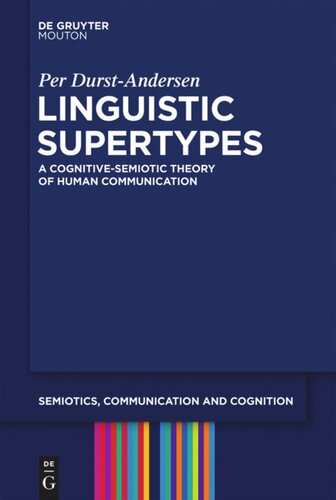

Most ebook files are in PDF format, so you can easily read them using various software such as Foxit Reader or directly on the Google Chrome browser.
Some ebook files are released by publishers in other formats such as .awz, .mobi, .epub, .fb2, etc. You may need to install specific software to read these formats on mobile/PC, such as Calibre.
Please read the tutorial at this link: https://ebookbell.com/faq
We offer FREE conversion to the popular formats you request; however, this may take some time. Therefore, right after payment, please email us, and we will try to provide the service as quickly as possible.
For some exceptional file formats or broken links (if any), please refrain from opening any disputes. Instead, email us first, and we will try to assist within a maximum of 6 hours.
EbookBell Team

5.0
108 reviewsThe book offers a completely new view of language and of languages such as Russian, Chinese, Bulgarian, Georgian, Danish and English by dividing them into three supertypes on the basis of a step-by-step examination of their relationship to perception and cognition, their representation of situations and their use in oral and written discourse. The dynamic processing of visual stimuli involves three stages: input (experience), intake (understanding) and outcome (a combination). The very choice among three modalities of existence gives a language a certain voice -- either the voice of reality based on situations, the speaker's voice involving experiences or the hearer's voice grounded on information. This makes grammar a prime index: all symbols are static and impotent and need a vehicle, i.e. grammar, which can bring them to the proper point of reference. Language is shown to be a living organism with a determinant category, aspect, mood or tense, which conquers territory from other potential competitors trying to create harmony between verbal and nominal categories. It is demonstrated that the communication processes are different in the three supertypes, although in all three cases the speaker must choose between a public and a private voice before the grammar is put into use.